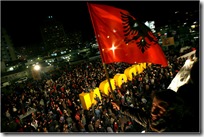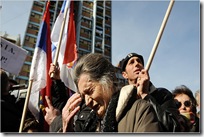I am happy and relieved to be posting my final book review of the quarter for my independent study with Hendrik Spruyt on Donald Akenson’s God’s People: Covenant and Land in South Africa, Israel, and Ulster.
While I was not ultimately convinced by the scope of Akenson’s argument, it is a compelling and thought provoking read. At 350 pages, the book is quite long by academic standards. That said, it is definitely worth the time for anyone interested in the role of religion and biblical allusion in the construction of cultural and political claims.
Please find the review after the jump. As always, comments and criticisms are welcome


 Today an Arab resident of Jerusalem broke into the Merkaz HaRav yeshiva in the neighborhood of Kiryat Moshe and murdered eight students and injured at least ten others.
Today an Arab resident of Jerusalem broke into the Merkaz HaRav yeshiva in the neighborhood of Kiryat Moshe and murdered eight students and injured at least ten others.






 If we can say anything "nice" about Hamas, it is that they, unlike their Fatah counterparts, are both consistent and honest. When they say they want the destruction of the State of Israel, they mean it and they stick to their story.
If we can say anything "nice" about Hamas, it is that they, unlike their Fatah counterparts, are both consistent and honest. When they say they want the destruction of the State of Israel, they mean it and they stick to their story.